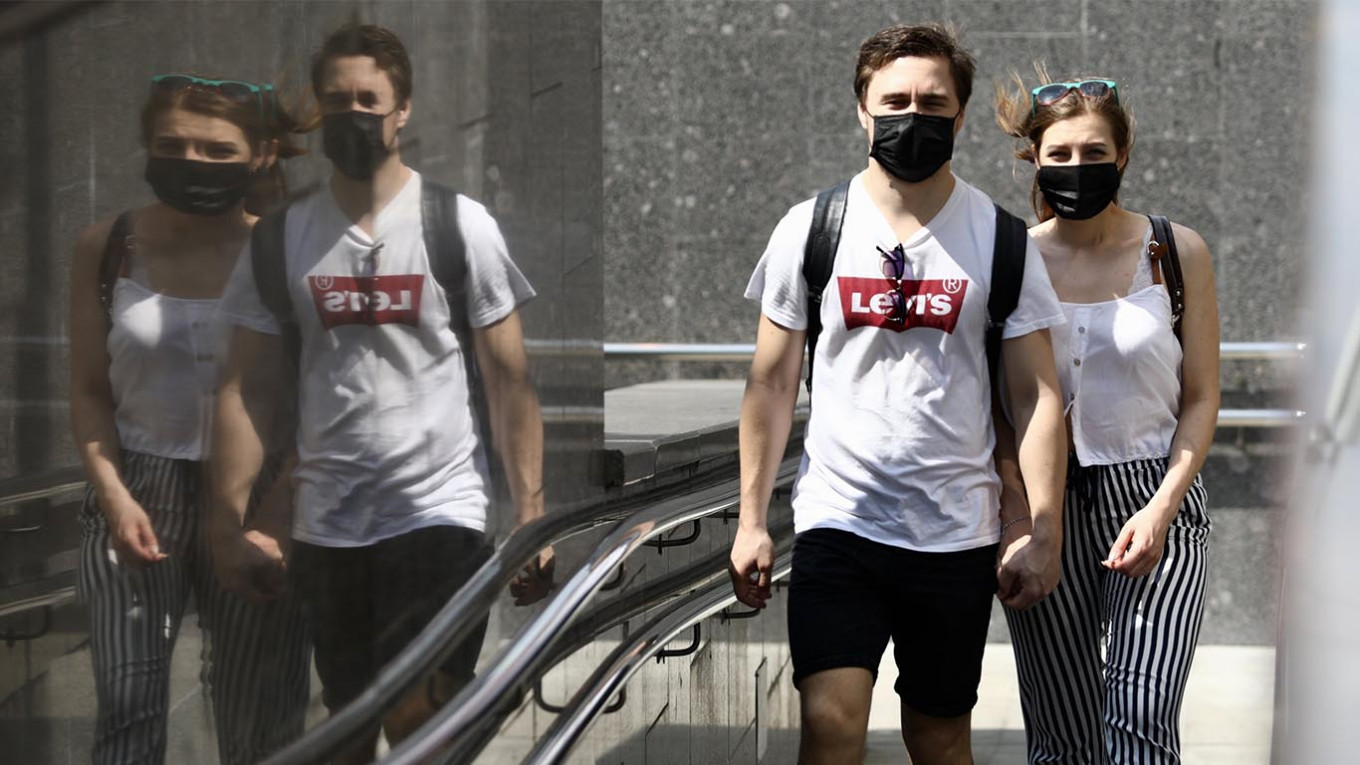In authoritarian countries every government move is made for the political or financial gain of the ruling elite. The story of Moscow’s sudden reopening is no different.
While the coronavirus pandemic disrupted the global economy, in Russia it also affected plans launched on Jan. 15 to turn the country from a quasi-electoral democracy into Putin’s monarchy.
Russian authorities introduced their first quarantine attempts quite early, as there were fewer people infected or dying on March 28 than in other countries that had introduced the same restrictions. But Russia’s quarantine – at it’s strictest in Moscow – was designed in a purely Russian way as the authorities believed that administrative procedures rather than medical precautions could counter the pandemic.
In all other countries the wearing of masks was made obligatory during the ‘stay-at-home’ period, while people retained their right to go outside from time to time. Only in Moscow it was necessary to apply for a permit to leave one’s house, while masks were only made obligatory on May 12.
President Vladimir Putin announced the countrywide quarantine was over but in Russia the announcement came when the number actually of daily new cases was still high. In Italy and Germany didn’t lift lockdown until numbers of new cases had plummeted.
It was impossible for Russia’s quarantine to last for more than two months because people had become exhausted.
I believe the Russian authorities had no alternative but to ease the restrictions despite the epidemiological situation.
In Moscow’s case there was an ongoing struggle between the city government — which wanted to keep restrictions in place — and the Kremlin — which wanted the reopening to happen before the June 24 Victory Day parade and the July 1 constitutional referendum.
Public health indicators all point to it being far too early for the lifting of quarantine, but political reasons prevailed, and now we will see what happens next.
Coronavirus statistics are now seemingly irrelevant. For the last three weeks the countrywide count of new cases has plateaued between 8500 and 9300. The only other country reporting that level of stability is Belarus, where the figures are simply plucked from nowhere.
So it looks like the coronavirus problem will be neglected rather than cured in the coming weeks. Moreover, even if one assumes that the number of cases in Moscow is slightly declining, the pandemic in Russia’s regions is still on the rise. Moscow’s central place in the country’s infrastructure will inevitably put the capital at risk as railway and air transportation resumes and international flights are once again allowed.
For me there is little doubt that the effect of Moscow’s reopening will be disastrous.
Russians believe the end of quarantine means not just the reopening of businesses and the lifting of walking and travel restrictions but also the end of all precautions in their daily lives. Very few of them are wearing masks, and many are not seriously concerned by the pandemic.
But the coronavirus hasn’t been defeated – the people and the healthcare system have just got used to it. I expect that the pandemic in Russia will last for a long time, its effects on politics and the economy will just become less dramatic.
For Moscow this will mean that the city’s economy remains depressed as service-based businesses won’t be able to run at full capacity for months, the effects of the pandemic will become more visible as entrepreneurs assess their losses and the strong link between the capital and the regions weakens.
The most important question now is not whether the city can survive the summer without a new wave of infection. I would say that seems probable as Muscovites head to their dachas in neighboring regions and there are fewer domestic and international tourists.
But what will happen in September when colleges and schools resume their activities?
It’s obvious that the economy of a modern city cannot restart unless children are allowed to go to kindergarten and school, as otherwise their parents can only work remotely, which hasn’t proved easy in Russia.
A Russian proverb says you never complete renovations in your home, you only stop them. You could say the same of the coronavirus pandemic — we’ve declared victory but it’s not over and we’ll only know the truth at some point in the future.
A Message from The Moscow Times:
Dear readers,
We are facing unprecedented challenges. Russia's Prosecutor General's Office has designated The Moscow Times as an "undesirable" organization, criminalizing our work and putting our staff at risk of prosecution. This follows our earlier unjust labeling as a "foreign agent."
These actions are direct attempts to silence independent journalism in Russia. The authorities claim our work "discredits the decisions of the Russian leadership." We see things differently: we strive to provide accurate, unbiased reporting on Russia.
We, the journalists of The Moscow Times, refuse to be silenced. But to continue our work, we need your help.
Your support, no matter how small, makes a world of difference. If you can, please support us monthly starting from just $2. It's quick to set up, and every contribution makes a significant impact.
By supporting The Moscow Times, you're defending open, independent journalism in the face of repression. Thank you for standing with us.
Remind me later.








